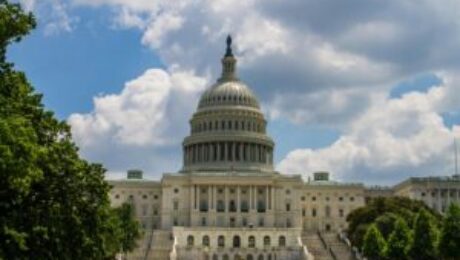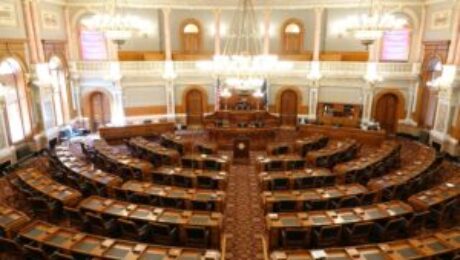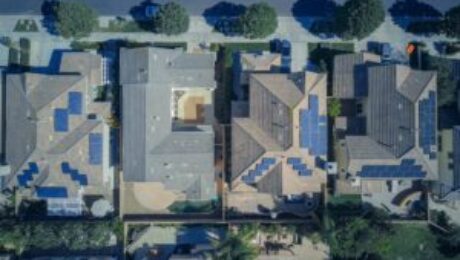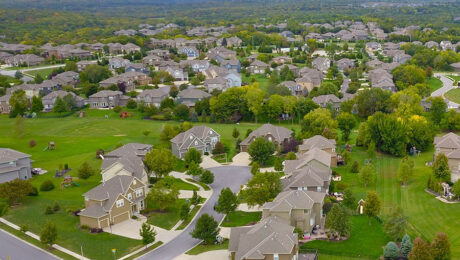More Updates on the Enforcement of the Corporate Transparency Act
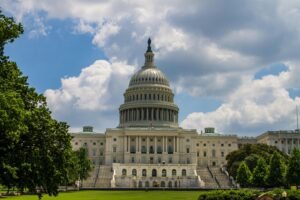
There have been more developments in the cases arguing the enforceability of the Corporate Transparency Act (CTA). On Monday, December 23, 2024, the U.S. Fifth Circuit Court of Appeals lifted the preliminary injunction, which blocked the enforcement of the CTA, issued by the U.S. District Court of the Eastern Texas earlier this month. This presumably restored the January 1, 2025 deadline for filing of the beneficial ownership information (BOI) report.
However, recognizing that additional time may be needed by reporting companies to comply, given the preliminary injunction, FinCEN has extended the January 1, 2025 deadline until January 13, 2025 for reporting companies created or registered prior to January 1, 2024. These companies will need to prepare and file their initial BOI reports with FinCEN to comply with the January 13, 2025 deadline.
We will continue to update on developments on this matter as the related cases are litigated. If you have questions or need a BOI Report filed on behalf of your company or community association, please contact us here.
Related Information:
Corporate Transparency Act Enjoined
Corporate Transparency Act and Beneficial Ownership Information Reporting Requirements
Are Community Associations Reporting Companies Pursuant to the Corporate Transparency Act?
- Published in Business, Community Associations, Condominium Owners Associations, Home Owners Association
Are Community Associations Reporting Companies Pursuant to the Corporate Transparency Act?
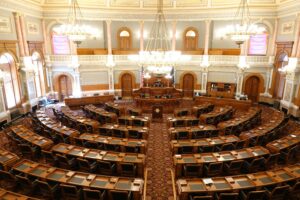
The Corporate Transparency Act (CTA) is a federal law that requires certain businesses to disclose information about their beneficial owners to the Financial Crimes Enforcement Network (FinCEN). The CTA was enacted in 2021 as part of the National Defense Authorization Act with the purpose of preventing and combatting financial crimes.
The CTA requires certain business entities to file a Beneficial Ownership Information (BOI) report with FinCEN. You can learn more about the BOI reporting requirements here.
Much effort has been made to change the CTA to provide an exemption for community associations from the BOI reporting requirements, however, nothing has changed. Most homeowners associations and condominium owners associations will be required to file a BOI report by January 1, 2025. The exceptions to the reporting requirement are associations that 1) are actively held as a 501(C)(4) organization with an IRS exemption or 2) are operating within the United States, have an annual revenue of $5,000,000.00 or more, and have 20 or more employees. Most community associations will not meet the requirements of these exemptions.
The information that will be required for the community association is: 1) legal name, 2) any other identifiers such as “doing business as” or “trading as,” 3) current street address of principal place of business, 4) jurisdiction of formation or registration, and 5) tax payer identification number.
The information that must be provided by the Board Members is: 1) Individual’s name, 2) date of birth, 3) residential address, and 4) identifying number, such as a license or passport, and the state which issued the identification. Beneficial owners must also provide an image of the identification.
Any reporting company and/or beneficial owner who willfully violates this requirement may face civil penalties of fines up to $500 per day that the violation continues and criminal penalties of up to 2 years imprisonment and up to $10,000 in fines. Penalties may be issued for willfully failing to file, filing false information, or failing to correct or update a previously filed report.
Here are some helpful links:
If you have questions regarding the BOI reporting requirements and/or the CTA, or your association needs help filing the report, please contact us at (513) 643-3554 or info@richterlaw.us
Security Camera Usage and Community Associations

As technology as has advanced, and home security cameras have become more accessible to people, the issue has provoked many questions for community associations. Some of these include whether a homeowners’ association (HOA) or condominium owners’ association (COA) can or should prohibit owners from installing cameras, what type of guidelines should be implemented for the use of security cameras by owners, and whether the HOA/COA can install security cameras in common areas.
Use of Security Cameras by Individual Owners
While there is mixed evidence, some studies suggest that home security cameras and systems deter crime up to 50%. Thus, allowing owners to install and utilize home security cameras allows a sense of safety, and may in fact actually deter crime throughout the community.
However, privacy concerns should also be considered and weighed against safety concerns. Cameras should point away from neighbors’ windows and backyards. They should never be able to capture another’s private space.
Furthermore, the installation of cameras is typically considered an architectural change and should comply with the architectural guidelines and standards of the community association. If HOA/COA approval is required for architectural changes, owners should follow the procedures of the community association for approval before installing cameras.
Cameras and Common Areas
When a Board of Directors of an HOA or COA is considering installing cameras in common areas, they should first consult the governing documents. These documents often contain rules and guidelines regarding the use of cameras. Typically, cameras are used in common areas such as fitness centers, clubhouses, event spaces, and elevators. Again, privacy concerns must be considered. Cameras should not be used in areas such as bathrooms or changing rooms or point towards anywhere that captures private property.
Another consideration when deciding whether to utilize cameras in common spaces is cost. There is equipment, installation and maintenance costs but also the potential cost of having someone monitor and store the footage. A Board implementing camera usage must also decide who will access to the footage and what circumstances allow that person(s) to review footage.
If an HOA/COA Board is thinking about implementing security cameras in common areas, it should create and adopt a policy addressing all of these things. Moreover, if there are concerns over individual owners’ security cameras, a Board should consider amending the association’s community documents to include specific restrictions, guidelines, and/or standards with regards to cameras.
Solar Panels and Community Associations
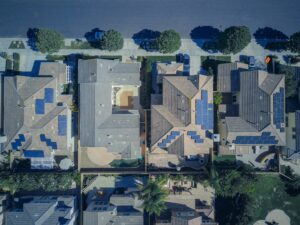
As energy costs increase, technology advances, and people become more concerned about environmental conservation, more people are considering installing solar panels. This is becoming a bigger issue within communities which are part of a condominium owners’ associations or homeowners’ associations. New legislation addressing solar panels in community associates was enacted fairly recently (September 2022).
Solar Panels in Condominium Communities
Condominium declarations may continue to completely prohibit solar panels. If a condominium declaration does not prohibit solar panels, Section 5311.192 of the Ohio Revised Code permits unit owners to install them on the roof of their units if there is not another condominium unit above or below them, and one of the following is applicable:
- The unit includes the roof and the cost of insuring, maintaining, repairing and replacing is the responsibility of the owner and is not a common expense; OR
- The condominium declaration specifically allows for and regulates the types and installation of solar energy collection devices in the common or limited common elements and determines who is responsible for the cost to insure, maintain, repair, and replace such devices.
In communities where solar panels are permitted, the board can establish reasonable restrictions concerning the size, place, and manner of placement of soler panels.
Solar Panels in HOA Communities
Similar to the law on condominiums, solar panels may be prohibited by the Declaration of Covenants, Conditions and Restrictions of a homeowners’ association. If the declaration does not prohibit solar panels, owners may install solar panels on their lots as long as they are responsible for the maintenance and repairs of the areas on which the solar panels are installed. In communities with HOAs, is likely that an owner is responsible for the roof of the structure and all parts of the lot. HOA boards also have the right to establish reasonable restrictions concerning the size, place, and manner of placement of solar energy panels.
It is important for HOA and COA boards to determine whether they would like solar panels to be permitted or not, and if they will be permitted, the restrictions that may need to be established. The association’s documents may need to be amended to establish and protect the desire of the community regarding solar panels.
Richter Law can help answer questions and address concerns you may have about solar energy collection devices in your community and assist with any document amendments.
Creating Clear and Enforceable Rules

Typically, a condominium owners association’s (COA) and homeowners association’s (HOA) governing documents set broad parameters and restrictions for governance of the community. The association’s documents grant power to community association boards to create and establish more specific rules and enforcement procedures that are tailored to the needs of the particular community. A COA board will typically have a broad scope of rulemaking authority. A HOA board’s scope of authority is typically less.
It is important for HOA and COA boards to review their governing documents so that they understand the scope of their authority and to assess whether the current rules and guidelines are still working for the community. Condominium associations boards and homeowners associations boards should create and establish clear and reasonable rules. Clear rules provide guidance to owners on what is allowed and expected within a community. This allows owners to live in and enjoy their property and the community within the parameters of those guidelines.
Moreover, HOA & COA boards should also adopt clear enforcement procedures and be sure to apply those procedures properly and fairly to all owners of the association. Homeowners Association and Condominium Boards can quickly find themselves in a tough and expensive situation when they try to enforce rules against one owner but has failed to enforce the same rule against a different owner.
Also important is being aware that federal, state, or local law may supersede the rules and guidelines a board has adopted. For example, a board may allow fences to be installed on the entire perimeter of a property, but a local ordinance may require a certain amount of setback from the property line.
Our firm can help with any questions your board has regarding the scope of its authority. If the board has not reviewed the governing documents of the association for quite some time, it may be a good idea to sit down with an attorney and go through a review. Furthermore, we have experience in helping boards create, adopt and enforce rules and guidelines for community associations. Please reach out to us to schedule a time to discuss your HOA or COA board’s specific needs.
See Attorney Amber Richter’s Profile Here
- Published in Community Associations, Home Owners Association
What Is the Purpose of an HOA?
In short, a homeowners’ association (HOA) is responsible for the maintenance and repair of the common elements within the community as well as enforcing the rules and restrictions. A well-operated and managed HOA boosts the community and protects property values.
It is not uncommon for owners to question what their HOA assessments are used for, especially in communities that do not have a lot of amenities. Basic common elements include water management systems, often including some sort of basin for run off water, signage, and common ground space and landscaping. Some communities have amenities such as pools, clubhouses, and walking paths. All of these are common elements. Assessments paid by the owners are used toward maintaining, repairing and insuring these common elements. Therefore, communities with a lot of amenities, or common elements, typically have higher monthly or yearly assessments.
Owners that are part of an HOA community also have better protection of their property values. The rules and regulations within a community help to create and maintain a desirable community. The HOA helps to ensure that the community is aesthetically pleasing, with well maintained homes and yards. These rules and regulations also promote safety and a sense of community within the neighborhood. All these things make the community more attractive to potential buyers.
All the HOA’s governing documents, including rules and design guidelines, should have been provided to you at the time you purchased your home. Your HOA Board of Directors or Property Management can also provide you with these documents. If you have questions regarding your HOA, its responsibilities, or your responsibilities as a homeowner, please contact Richter Law to set up a consultation.
- Published in Home Owners Association
